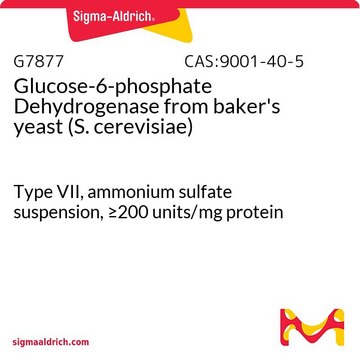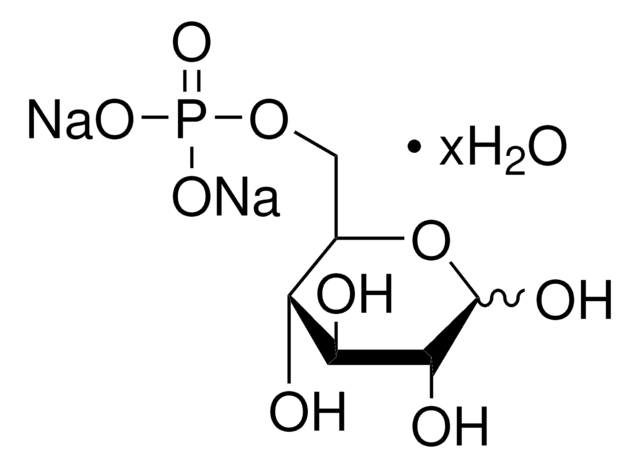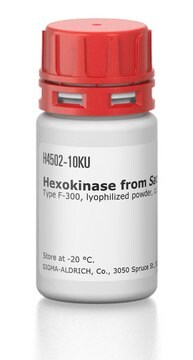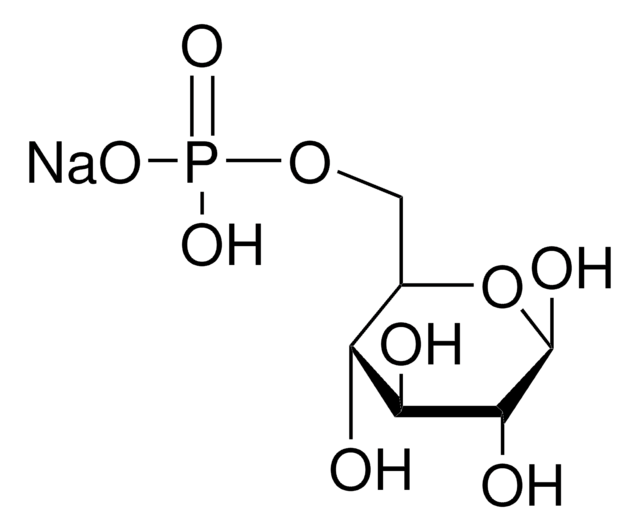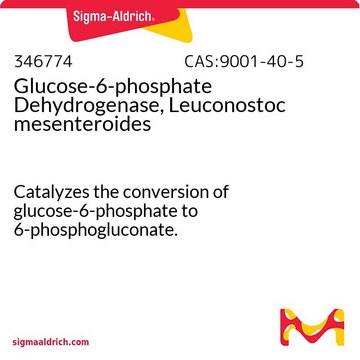G6378
Glucose-6-phosphate Dehydrogenase from baker′s yeast (S. cerevisiae)
Type XV, lyophilized powder, 200-400 units/mg protein (modified Warburg-Christian)
Synonym(s):
G-6-P-DH, Zwischenferment
About This Item
Recommended Products
type
Type XV
Quality Level
form
lyophilized powder
specific activity
200-400 units/mg protein (modified Warburg-Christian)
mol wt
128 kDa
purified by
crystallization
application(s)
diagnostic assay manufacturing
shipped in
dry ice
storage temp.
−20°C
Looking for similar products? Visit Product Comparison Guide
Related Categories
General description
Application
Biochem/physiol Actions
Unit Definition
Physical form
Preparation Note
signalword
Danger
hcodes
pcodes
Hazard Classifications
Resp. Sens. 1
Storage Class
11 - Combustible Solids
wgk_germany
WGK 3
flash_point_f
Not applicable
flash_point_c
Not applicable
ppe
Eyeshields, Gloves, type N95 (US)
Certificates of Analysis (COA)
Search for Certificates of Analysis (COA) by entering the products Lot/Batch Number. Lot and Batch Numbers can be found on a product’s label following the words ‘Lot’ or ‘Batch’.
Already Own This Product?
Find documentation for the products that you have recently purchased in the Document Library.
Customers Also Viewed
Protocols
This procedure may be used for all Phosphoglucomutase products except for Phosphoglucomutase, Catalog Number P4109.
Enzymatic Assay of Glucose-6-Phosphate Dehydrogenase (EC 1.1.1.49)
Our team of scientists has experience in all areas of research including Life Science, Material Science, Chemical Synthesis, Chromatography, Analytical and many others.
Contact Technical Service